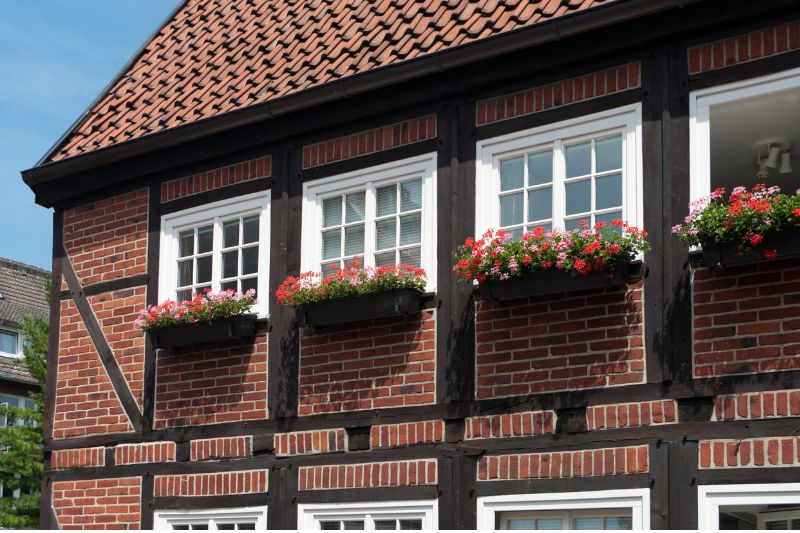Moving to Germany being Venezuelan is a life-changing experience. You arrive with excitement, fear, the desire to move forward and, of course, with nostalgia at the forefront of your mind.
Because yes, one can be in a city European surrounded by castles, punctual trains and order, but sometimes what we really want is a freshly fried empanada on a street corner or a margariteño mutt pie made by our grandmother
We, the Venezuelanswe take to Venezuela tattooed on the soul and although Germany offers many opportunities, the clash with the cost of living in Germany is one of the first realities we have to face.
Why is it advisable to live in Germany?

Before talking about the cost of living in GermanyIt is worth asking why so many Venezuelans we have chosen this country as our destination. Germany is a nation with a solid system, a stable economy and an enviable standard of living.
Here the rules are respected, the institutions work, and the future seems at least a little more predictable.
The security is one of the most valued points. To be able to walk down the street at night without fear, to leave your bike unchained in front of the shop or for your children to go to school on their own are luxuries that, unfortunately, many of us forgot existed.
In addition, air quality, access to nature, infrastructure and transportation make Germany a country where a life can be built on solid foundations.
We, who come from uncertainty, found in Germany a breath of fresh air. It's not perfect, of course, but it has that peace of mind we've been longing for.
And although the cost of living Germany may be high, what we get in return is often just what we were looking for.
Transport
Transport in Germany is efficient, punctual and quite comprehensive. Depending on the city you are in, you can count on metro (U-Bahn), regional trains (S-Bahn), trams (Straßenbahn) and buses. Of course, all this comes at a price.
On average, an single ticket can cost between 2.80 and 3.50 euros. If you are a commuter, the best option is to opt for a monthly payment. The monthly ticket ranges from 49 euros to more than 100 euros in some areas.
Compared to what we would pay for a trolley fare per stall or bus in Venezuelathe cost of living in Germany in transport is very high.
We, who were used to paying just enough (and sometimes bargaining for the fare), now have to organise every euro, because public transport, although reliable, is not cheap.
Of course, here you won't stand around waiting for hours. That's a luxury that in Germany is paid.
House prices in Germany: how much does it cost?

If there is one thing that weighs very heavily on the cost of living here, for us, the Venezuelansis the rent. Finding housing in Germany can be an ordeal, especially in large cities such as Berlin, Munich o Hamburg.
A one-bedroom flat (what would be an annexe in Caracas) can cost between 700 and 1,200 euros per month, not counting the additional costs such as electricity, water, heating and internet.
In smaller towns or rural areas, prices may go down a bit, but it doesn't compare to what we used to pay in Venezuela. Here, one has to go through interviews, teach contracts, financial capacity and even letters of recommendation in order to be able to rent.
We really miss that ease of get a house talking to the neighbour of a friend's cousin. Here everything is a thousand times more formal, structured, and the cost of living in Germany Housing can consume more than 40% of monthly income if you are not especially careful.
Food: quality at a good price

One of the least painful aspects of the cost of living in Germany is food. Although eating out is expensive, between €30 and €40 per person, going to supermarkets can be quite reasonable if you learn where to go, and what to buy.
At Germany there are supermarkets such as Aldi, Lidl, o Penny that offer quality products at good prices. A monthly purchase for one person can be between 150 and 250 euros, depending on your tastes and how you use the food you buy.
Bread, milk, fruit and vegetables are usually affordable. Meat and fish can be more expensive, but you can get options and there are always plenty of choices, from the cheapest and most economical to a day when you just want a treat.
However, it is very difficult to find Venezuelan cheesethere is no PAN flour everywhere, let alone ripe camburs for a good slice.
We, the Venezuelanswe manage, we look for Latin marketsWe go to Turkish shops, and we even bring what we can in our suitcases.
Electricity, water and internet

As for the services such as electricity, water, heating and internet, the cost of living in Germany also takes its toll. Electricity, water, heating and internet can add up to between 150 and 300 euros per month, depending on the size of the house and the city and of course, as for the internet, the contract you have.
Germany is a cold country most of the year, so heating is essential. And that is reflected in the bill.
We, who were used to the eternal heat and leaving the window open, have to learn how to regulate the thermostat here so that we don't get any surprises in winter.
The internet in Germany is fast and reliable, but not necessarily cheap. A standard monthly fee is between 30 and 50 euros. The services are quality, yes, but as we always say, quality that costs.
Other expenses to consider
In addition to the basics, there are many other elements that influence the German cost of living. Some may seem small, but when added up, they make a big difference at the end of the month:
- Health: If you are working legally, you are obliged to pay a health insurance. The cost can be 14% to 15% of gross monthly income. It is an excellent system, with access to first-rate medical care, but it is a significant burden on the budget.
- Education: The public universities are free or very cheap, which is a great advantage. However, if you have small children, nursery schools (Kitas) can cost between 100 and 500 euros per month, depending on the federal state.
- Leisure and culture: Going out to the cinema, to a concert or simply to eat can be expensive. A cinema ticket costs between 10 and 15 euros, a beer in a bar is between 4 and 6 euros, and dinner in an average restaurant can cost between 20 and 40 euros per person.
- Clothing and footwear: There are always budget options like Primark or C&A, but if you want to buy quality clothes it can cost quite a lot. A winter jacket can easily cost over 100 euros, and shoes that last can cost over 80.
- Household and domestic appliances: Setting up a house from scratch is also a major expense. A mattress costs between 150 and 400 euros, a fridge or washing machine 300 to 600 euros, let alone if you need furniture.
- Formalities and documentation: Take out documents such as the residence permittranslating papers, or even register at the town hall may have associated costs, either in time or money.
All these elements are part of the cost of living in Germany and these are expenses that are often not visible to the naked eye, but which have an impact on day-to-day life.
We, the VenezuelansWe learn to stretch every euro, to prioritise the essentials and to enjoy what we have. But it is inevitable that we still have doubts as to whether this country is for us.
Is it worth it?
After reviewing all that is involved the cost of living in GermanyAnd the answer, though not simple, for many of us is yes.
Advantages:
Germany offers us something that for years has been almost impossible for us in the Venezuela stability.
Here, if you work, you can living with dignity. You have access to quality health care, efficient transport, accessible education and a safe environment for you and your family.
You can make long-term plans, dream of saving, travelling, studying or having a quiet life. In addition, there is a strong culture of respect for others, labour rights, and a functioning infrastructure.
We deeply value things that many people here take for granted such as the electricity that won't go away, the drinking water always available, the punctuality of the services, the possibility to walk without fear. And although the cost of living in Germany may be high, the return in quality of life is real.
Disadvantages:
But not everything is perfect. There is a language barrier that not everyone overcomes easily, a climate that for many can be harsh, and a society that, while respectful, can feel cold or distant.
The adaptation process can be long and lonely. We miss the human warmth, the traditions, the spontaneity. It weighs on us not to be close to the family, to the familiar. And of course, economicallyAt the beginning it can feel like a steep slope.
There are also the emotional costsAdapting means leaving things behind, starting from scratch, learning new ways of doing everything. And that, although enriching, is not always easy.
We carry that nostalgia, that "I miss you" that cannot be erased no matter how many castles or efficiencies we have in front of us.
So, is it worth it? Yes, if you are willing to adapt, a make an effort, to rebuild yourself away from home. Germany can be that place where you start again, where your children grow up safe, where you yourself can find a more peaceful life. The cost of living in Germany is not only economic, it is also emotional. But those of us who take it on often don't look back.
The value of our resilience as a community is unparalleled.
At CuriaraWe are here to help you through the whole process. Not only do we help you understand how to adapt and manage these changes, but we also offer you the peace of mind of being able to send money to your loved ones in Venezuela quickly and safely.
Because we know what it means to start over, and we want to be that constant support in this new phase.
